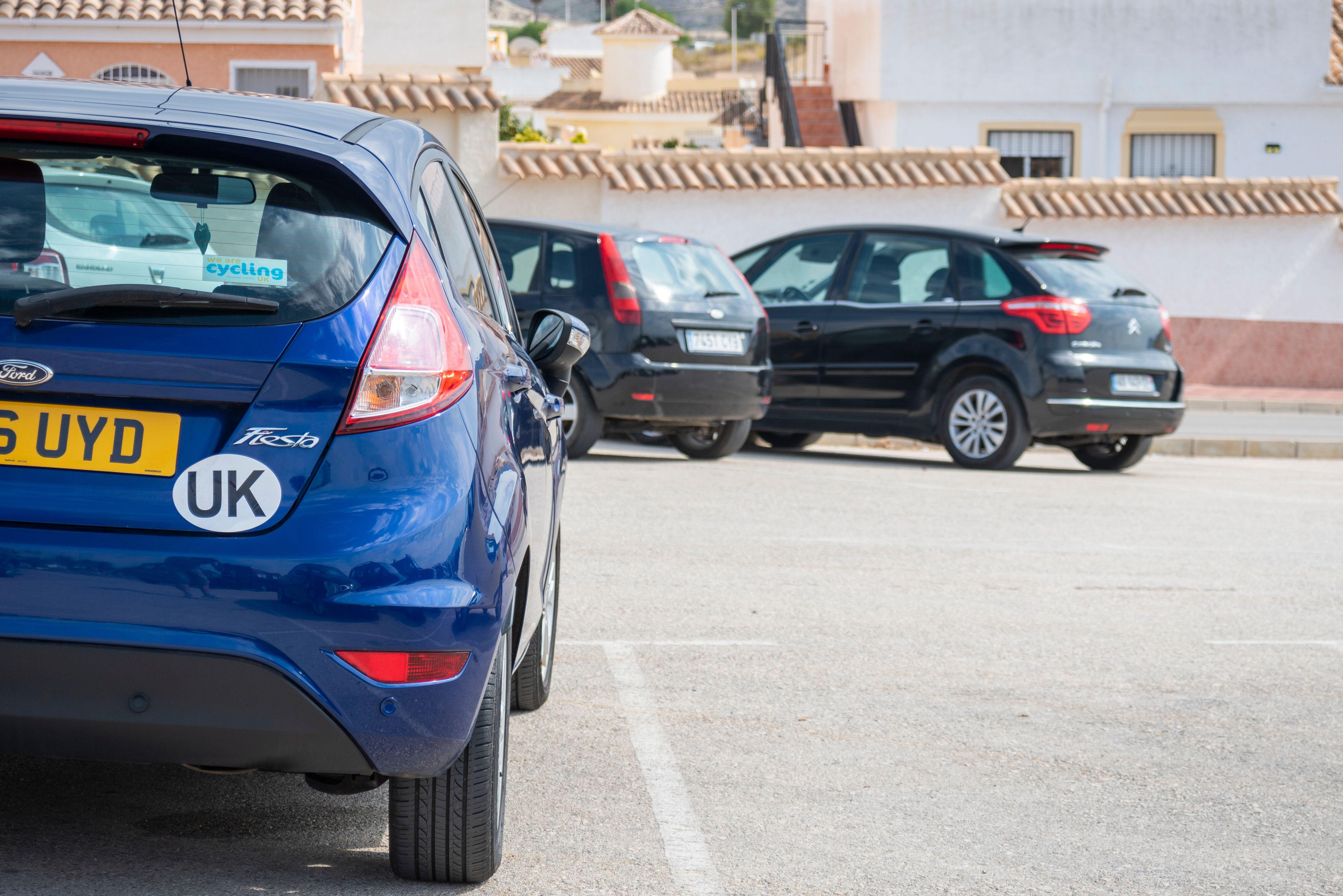Escape to France with your UK sticker
The Man Who Pays His Way: be careful what you wish for

Your support helps us to tell the story
From reproductive rights to climate change to Big Tech, The Independent is on the ground when the story is developing. Whether it's investigating the financials of Elon Musk's pro-Trump PAC or producing our latest documentary, 'The A Word', which shines a light on the American women fighting for reproductive rights, we know how important it is to parse out the facts from the messaging.
At such a critical moment in US history, we need reporters on the ground. Your donation allows us to keep sending journalists to speak to both sides of the story.
The Independent is trusted by Americans across the entire political spectrum. And unlike many other quality news outlets, we choose not to lock Americans out of our reporting and analysis with paywalls. We believe quality journalism should be available to everyone, paid for by those who can afford it.
Your support makes all the difference.Simon Calder, also known as The Man Who Pays His Way, has been writing about travel for The Independent since 1994. In his weekly opinion column, he explores a key travel issue – and what it means for you.
Do you own a car? Does it have a GB sticker? Are you heading for Continental Europe? If you answered those in the affirmative, it is my duty to inform you that, ahead of your journey, the government says you must “cover or remove” the offending item.
The reason: during the coronavirus pandemic ministers found time to ask the United Nations to change the decades-old “GB” identifier to “UK”.
A Department for Transport spokesperson told me: “Changing the national identifier from GB to UK symbolises our unity as a nation.”
That is not quite what the French make of it, according to Bill Swan, a retired business architect who is currently on holiday in France.
He and his wife Deirdre paused at an aire on their way south from the port of Dieppe: specifically Beaune-les-Mines, just north of Limoges.
“We were feted,” he reports. “A French couple pulled in as we were leaving, excitedly stopping us and pointing to our UK car sticker.”
Marvellous that the French have decided to forgive the venom of Brexit and share the joy for our unity as a nation, you might conclude. But hang on …
“We were asked which town we were fleeing from,” says Mr Swan, who is from lovely Rye in East Sussex.
Last time I checked, there was no one escaping from this charming Cinque Port on the edge of Romney Marsh.
A case of mistaken motoring identity, it turned out.
“They had taken us for Ukrainian refugees. My poor French response probably intensified their misapprehension.”
You can understand the mistake: French motorists are accustomed to the GB identifier for British vehicles, and it would be reasonable to assume that Ukraine’s identifier is UK (in fact it is UA).
Mr Swan, a keen supporter of Remain, briefly contemplated seeking the couple’s sponsorship of an application for French nationality. And then he “started to wonder why the British government felt the need to switch from GB to UK?”.
He describes it as “a pathetic signal that we haven’t forgotten about Northern Ireland, even if we have put a border down the Irish Sea”, and adds: “Nobody in France seems to have noticed until it provoked the incorrect assumption, and about half of British cars travelling seem to still be on ‘GB’ stickers.”
As Mr Swan and every other Remainer knows, Leave was propelled to victory in the 2016 EU referendum by an alliance of the right wing of the Conservative party, Nigel Farage’s UKIP and trade unions such as the RMT.
It was brave of the National Union of Rail, Maritime and Transport Workers to announce it was “campaigning hard” for Leave, given the economic damage that the UK leaving the European Union would cause to its members’ interests, especially in the ferry business.
One key reason: to “end attacks on seafarers”. The RMT explained: “The EU has promoted undercutting.” That is the practice of replacing crew with cheaper overseas labour. Leave the European Union and that threat will disappear, was the implication. But on Thursday, P&O Ferries announced it was doing exactly what the union warned about.
Long-serving crew were told to leave their ships and await “a major announcement” – which turned out to be a short video message telling them with brutal brevity that their careers had just ended.
Having spent Thursday and Friday in Dover, the port most affected, my hope is that P&O Ferries will feel the heat of public opinion and make a humiliating U-turn – apologising to, and bringing back, the seafarers. I wonder if the RMT union, in turn, might say sorry for the failure of Brexit to prevent the mass sackings we were warned about? Meanwhile, drive that UK car with pride.
Join our commenting forum
Join thought-provoking conversations, follow other Independent readers and see their replies
Comments